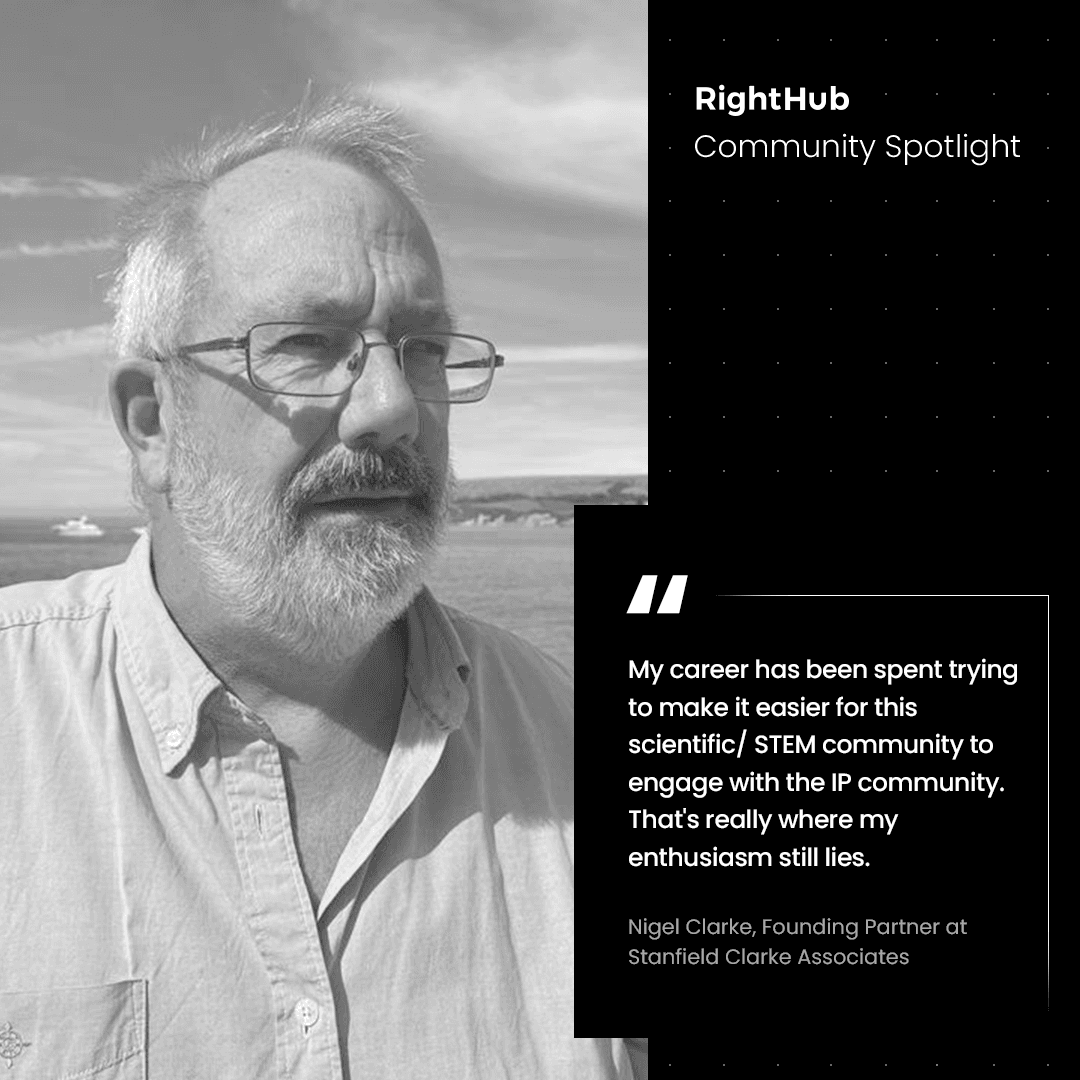RH – You began as a Government research scientist in the UK. How did you find the transition into IP?
NC -Initially it was a real culture shock coming from R&D and moving into IP. For me the logic systems were entirely different even though patents are supposed to be the IP protection for science and technology. There’s a disconnect, in my opinion, between the mind of a scientist/engineer compared to that of an examiner. My career has been spent trying to make it easier for this scientific/ STEM community to engage with the IP community. That's really where my enthusiasm still lies.
RH – This led to different roles at the EPO?
NC - When I first joined EPO as an examiner in the early 90’s we were given introductory sessions that explained the various EPO locations. The Munich headquarters, the Hague, Berlin, and a new office in Vienna just opening up that had to do with patent information. I thought that sounded interesting. But I parked that and started work in search examination in a lot of (new to me) technologies. I learned how to read loads of information in different languages and how to analyse these and to write critical and concise reports. Later, the opportunity came to work in Vienna with patent information. I saw this as great opportunity. My first job here was to coordinate the PATLIB (patent library) network in Europe. This led to forming relationships with the PATLIB centres and patent offices. It was a very stimulating job with a steep learning curve. I made many contacts and friends in the different offices and centres. They are still friends to this day, although we are all older.
RH- And then you went on to Espacenet?
NC- The team and I were the “face” and product champions for Espacenet. I worked with some really talented people, the back-end devs, the UI designers and the user support team. It was a great job as we introduced Espacenet, one of the earliest online patent databases, to the patent information community, and to anyone wanting to mine patent literature.
RH- When was this?
NC- Espacenet launched in 1998, I joined in 2002 because it needed dedicated marketing. We had a handful of developers in The Hague, a handful in Vienna working on the promotion of the tool. There was never a huge team.
About six years ago there was a reorganisation and I was given the job of “patent research” which at the time wasn't very well specified. The EPO said: “you are from a research background so apply this to patent information”.
RH- Where did this lead?
NC – I focused on three areas. I observed the commercial patent information market to see who was doing what, and what was on the market . I looked at institutions, e,g. the European Commission, the OECD, to see how they used patent data. Then we got into the field of patent analytics. We created patent landscapes from the point of view of future and emerging technologies that were emerging from the labs & R&D, such as graphene, quantum, additive manufacturing, personalised medicine etc.
We put together “patent insight reports” with patent examiners, who are the subject matter experts and external consultants who are the patent analytic experts, to create narratives on the emergence of these technologies. That was really very exciting. The idea here was to show the utility of patent information, to showcase examiners expertise, and the EPO data.
We sought to make the approach transparent in order to give the reader the tools to apply the same methodology to other areas of technology.
I managed to come up with the acronym for this, which we used at the EPO, ‘FETA’ – Future and Emerging Technology Analytics – if you employed it properly, it was a fait accompli!
RH- Ha! What were the last projects you were working on?
NC- One of the last two which is still ongoing, is the Fighting Coronavirus platform. This came about as I thought the EPO was doing a lot for the workforce by introducing remote working, web meetings, etc, and for the applicants as there are many concessions on things like deadlines, the provision of online opposition, etc. I felt that the office could do more for the general public, so I pushed for a platform where we could put together everything we knew about the patents associated with coronavirus; vaccines, diagnostics, treatments, medical technologies, etc - that was a big project.
RH- What are you up to now?
NC – I have my own consultancy where I am currently doing some work around the practice of patent offices, and I support IP helpdesks. In academia I am working with researchers on innovation and IP management and I develop training materials, and education programmes for other IP offices.
What I want to do is to hopefully share some of my knowledge of IP and my learned experience. It’s rewarding to help people along , particularly those new to IP, to try and avoid, or at least lessen some of the culture shock I experienced when I left research and started working in IP.
